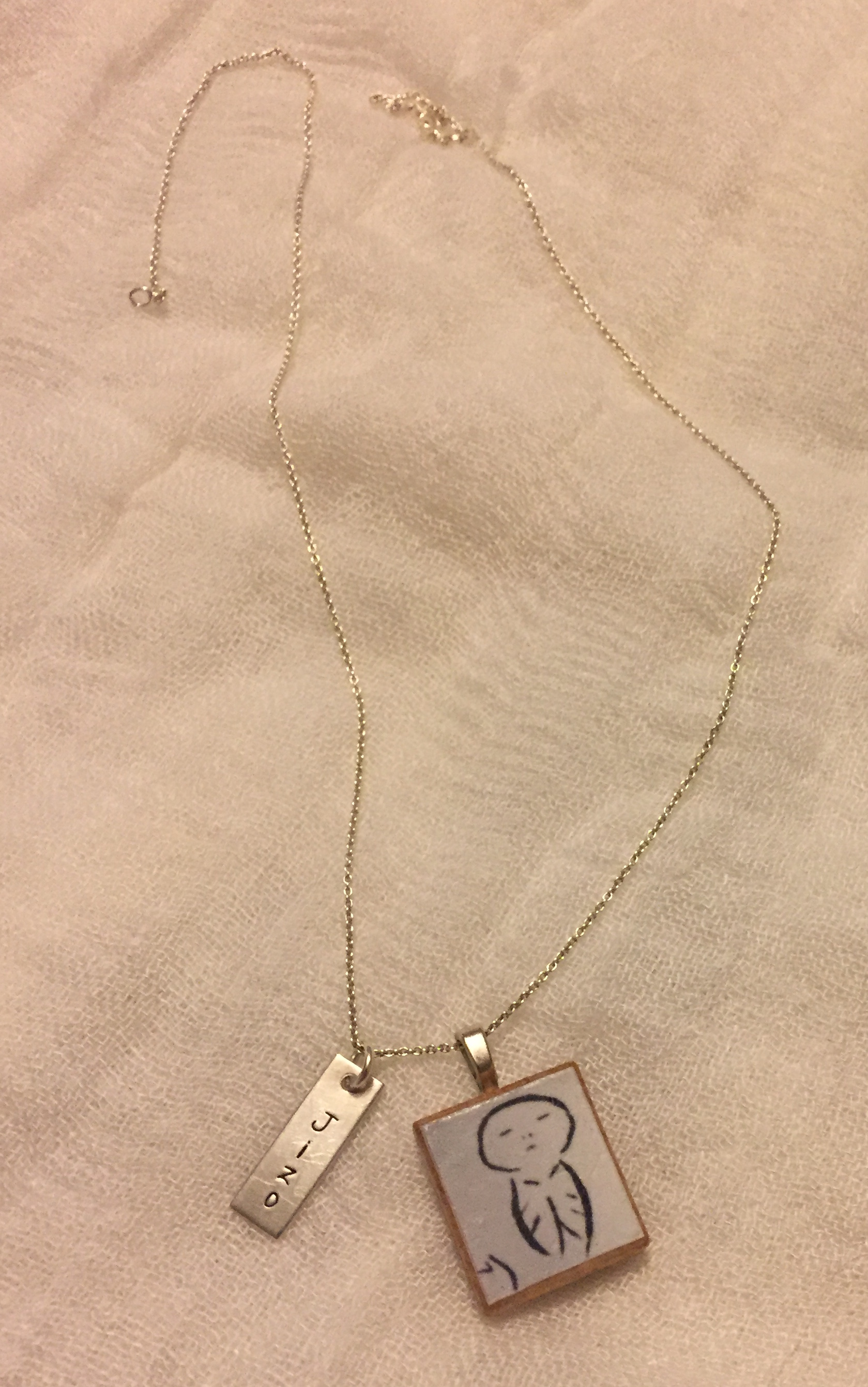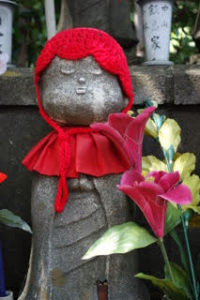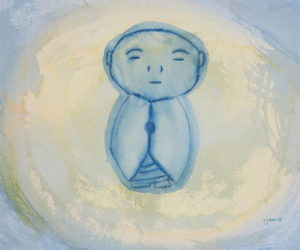Jizo – A New Sense of Community

You can not rush grief. I tried. It doesn’t work that way. It isn’t something to get over or move away from. It’s not a box you check when you feel fine one moment expecting it never to return. It is something that you eventually accept and with time learn how to keep moving forward. Everyone must travel the journey of grief at their own speed and in their own way.
I think most women who have lost a child before having the chance to meet would agree that it’s an isolating and lonely experience. I don’t think any woman forgets about a pregnancy loss. It’s buried deep down somewhere and re-surfaces periodically for so many reasons –individual reasons that make each of our stories unique and painful and valid.
Our culture, in the United States, doesn’t do a great job of providing comfort to the unlucky women who have experienced the loss of an unborn child. In English, there isn’t even a word for a mother who has gone through this. A wife who looses her husband is called a widow. But a mother who has experienced pregnancy loss – there isn’t anything. I say this because it seems that if it was recognized or talked about more widely, a word would have emerged along the way. National dialogue feels much more focused on shaming and denying instead of recognizing and supporting.
December 19th is a hard day for me. It’s a sad day. And while the holiday season is filled with reasons to be happy and hopeful and grateful, there is also a little hole in my heart during this time of year that has never really felt included in all the celebrating. A little piece that couldn’t come along for the ride. That little piece needed to be recognized and accepted somehow, not by everyone else, but by me.
As we approach Saturday, a day hundreds of thousands of women will march to be recognized and heard, I’m sure there are many women who will also walk with a little piece of their heart broken. I just want to say … you are not alone.
For Christmas this year my mom got me a necklace. One of the pendants is a simple painted tile and the other is a metal stamped plate with the word Jizo. I have worn it every day since I received it. So many people have complimented me on it. I haven’t felt the need to explain what it is or what it stands for. Yet, every time someone says something, I feel a connection that is heartening to me. I can touch it and my loss becomes tangible in a way that doesn’t require me to say one word – because I know.
I have discovered a larger sense of community in Jizo. In Japan women are free to remember openly when they have a loss, whether from miscarriage, abortion or an infant who died shortly after birth. Women have Jizo idols in their yards, there are temples and beautiful public gardens, a place to go and reflect, to leave a message, to cry, to remember. A place to honor those who were never born or who died very soon after birth.
Jizo has made me feel like I have something … a community that gets it, a community of people who have a common experience. I feel it without meeting any of these other women, but find comfort in knowing millions are out there – all over the world. Jizo acknowledges all who have lost a baby – no matter the cause – which is beautiful and inclusive and kind.
If you’ve lost a child, or know someone who has, I am introducing Jizo in case it can help anyone else as it has me. It might not be what you need right now and that’s okay. But if I can give one other person what I’ve received from learning about it, this post will be a success.
—
I recently spoke with Valerie Johns, the woman from whom my mother purchased my pendant. I reached out to her because I wanted to thank her and also because I was interested in how she discovered Jizo, something I was unaware of until I started searching myself.
The first time Valerie noticed the little figure was when touring Kyoto. She wasn’t looking for it. She saw little Buddha’s with bibs on them and began to take pictures. When she got to Hiroshima, she spent a morning hiking and saw another one in someone’s yard. The next day there was an entire shrine dedicated to these little Buddha’s with bibs. Valerie asked her tour guide what they were and she explained that it wasn’t Buddha but rather Jizo, the protector of women, children and travelers.
As she continued to travel throughout Japan she became more and more interested, started photographing them (below) and began to pay more attention to the the idol and the meaning behind it.

When she returned to the States Valerie began drawing and creating images, realizing our culture was missing a way to acknowledge the type of loss this idol recognizes. She showed the first image she created (below) to her husband, who told her “You should make these into jewelry. They might help somebody.” And so, she did.

She told me, “In this day and age with toxins and stressors more and more people are having trouble having babies…waiting longer … we invest a lot in the infertility business and not a lot in the grief business.”
Over the past ten years she has been making jewelry, giving people like me a sense of community. She tells me, “I cannot tell you how much it means when I hear how my giving birth to Jizo & Chibi has given someone a sense of community where she couldn’t find one previously. It is a great gift to me.”
On her website she has a message board where mothers can post what’s on their minds. Just the other day she received a message from a woman in France. She had it translated and told me it was a beautiful poem expressing guilt and sadness over her loss.
Her story made me realize, this is a multicultural experience, universal to mothers from all walks of life. In her discovery, she has created something that I couldn’t create myself. Thank you Valerie. Thank you for providing comfort and community when I thought I may never find it.
If you are interested in more information on her craft or her message board, you can find Valerie’s site at http://jizoandchibi.com/.
Leave a Reply